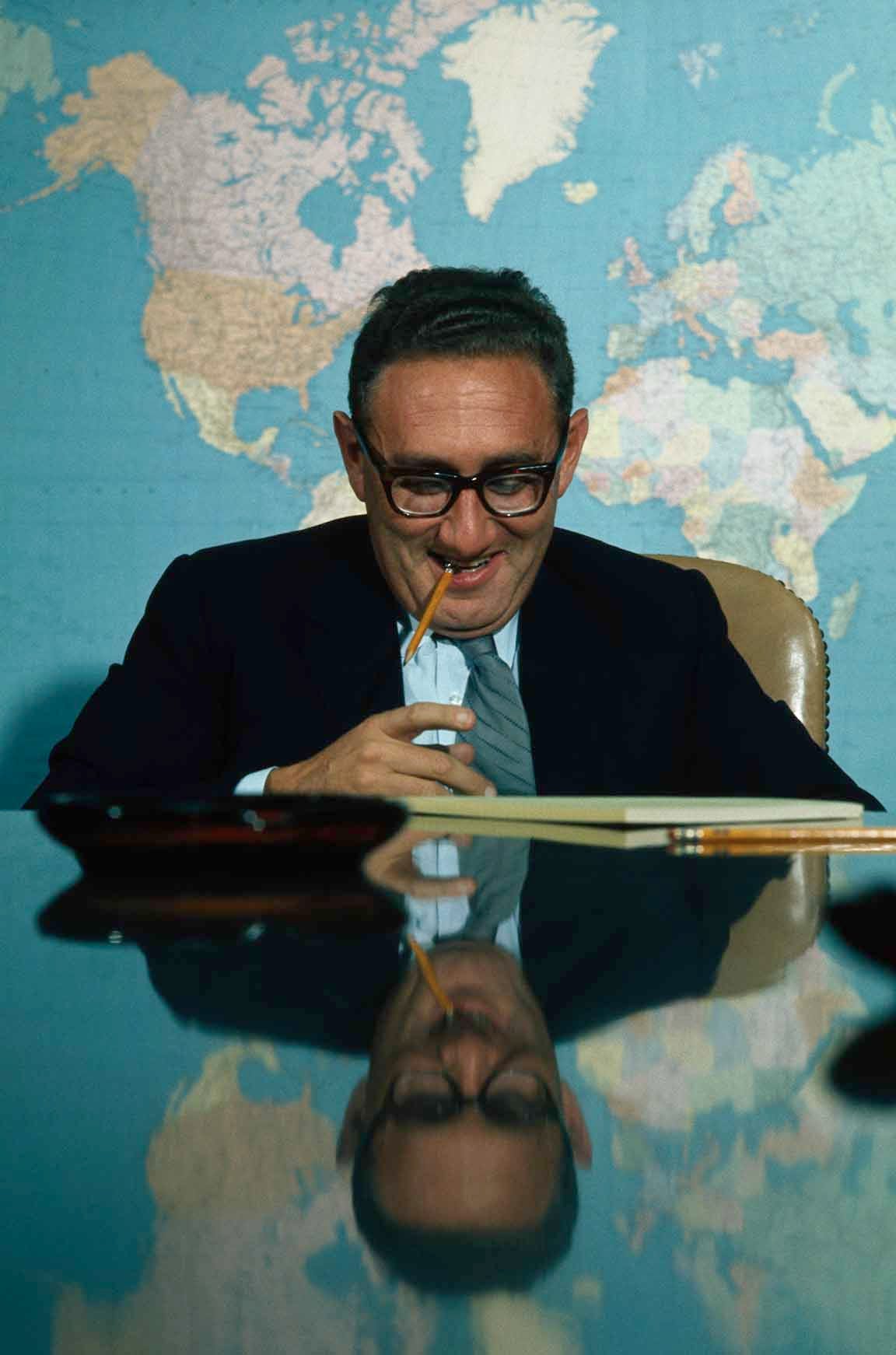NEVER DEAD ENOUGH DEP'T.

HENRY KISSINGER IS dead. The former Secretary of State's death immediately became the leading story on the New York Times home page. Directly below it was another piece of the day's top news: "U.S. Says Indian Official Directed Assassination Plot in New York."
A foreign power carrying out an assassination on United States soil would be a grave insult to American sovereignty and the international rule of law. Here is a news story from 2010 that revealed some previously concealed facts about the gruesome 1976 killing by car bomb of the former Chilean ambassador Orlando Letelier and a passenger in his Chevrolet, committed in broad daylight by agents of Chile's American-backed dictator Augusto Pinochet on Sheridan Circle in Washington, D.C.:
WASHINGTON—As secretary of state, Henry Kissinger canceled a U.S. warning against carrying out international political assassinations that was to have gone to Chile and two neighboring nations just days before a former ambassador was killed by Chilean agents on Washington's Embassy Row in 1976, a newly released State Department cable shows.
Whether Kissinger played a role in blocking the delivery of the warning against assassination to the governments of Chile, Argentina and Uruguay has long been a topic of controversy.
Discovered in recent weeks by the National Security Archive, a non-profit research organization, the Sept. 16, 1976 cable is among tens of thousands of declassified State Department documents recently made available to the public.
In 1976, the South American nations of Chile, Argentina and Uruguay were engaged in a program of repression code-named Operation Condor that targeted those governments' political opponents throughout Latin America, Europe and even the United States.
Based on information from the CIA, the U.S. State Department became concerned that Condor included plans for political assassination around the world. The State Department drafted a plan to deliver a stern message to the three governments not to engage in such murders.
In the Sept. 16, 1976 cable, the topic of one paragraph is listed as "Operation Condor," preceded by the words "(KISSINGER, HENRY A.) SUBJECT: ACTIONS TAKEN." The cable states that "secretary declined to approve message to Montevideo" Uruguay "and has instructed that no further action be taken on this matter."
This was just one betrayal and atrocity in a career defined by them from end to end, a life whose life's work was a body count in the millions. One plausible reading of Kissinger's blood-soaked career would be that he was fanatically, idiotically amoral—that he had fixated on the idea that morality and human rights were dangerously sentimental concerns for a superpower trying to shape the world to its interests, and that therefore prudence and realism demanded that he always steer toward the least moral, most inhumane options in sight. But that approach still demanded a moral compass, just one that pointed in reverse, which was how and why he consistently made sure, as with the Letelier assassination, to lie about what he'd done, or to have others lie for him. From the same 2010 story:
Writing in defense of Kissinger in 2004 when the issue arose, William D. Rogers, Kissinger's former assistant secretary of state, said Kissinger "had nothing to do with" a Sept. 20, 1976 cable instructing that the warnings to Chile, Argentina, and Uruguay be canceled.
This particular habit, this grim parody of scruples, may have made Kissinger the world's most formidable and accomplished enemy of democracy. It wasn't just all the people abroad whose chosen governments he supported overthrowing, or those he helped massacre to make sure they never got to choose how they were governed. It was his constant, tireless effort to conceal from the people of the United States the truth about what he was doing in the name of their national interests, so that no one could ever be held accountable, or take responsibility for it, or make it stop.
THE WORST THING WE READ™

Gavin Newsom and Ron DeSantis Are Not Having a Presidential Debate
THE HIGHEST GOAL of mainstream political campaign journalism is to announce what everyone knows is happening, at the precise moment that everyone comes to agree that they know it. The election passes through its scripted stages, candidates are described as gaining or losing momentum, and, in the end, the winner is the candidate who has succeeded at winning (with or without a majority of votes).
For the 2024 election cycle, this presents the problem that nobody knows anything about what is going to happen. There is no precedent for the current situation, in which the parties have already, without holding a single primary or caucus, effectively lined up behind two elderly, deeply unpopular candidates, one of whom is the incumbent president and the other of whom, in his previous position as the incumbent president, tried to steal the last election and is now facing multiple felony prosecutions. Nothing like this has ever happened before!
On the front of today's New York Times, the veteran political reporter Adam Nagourney addressed, or evaded, the problem of the unknowability of 2024 by filing a story that purported to be about what might happen in 2028. What it was in fact about was an upcoming television special on Fox News, in which Florida governor Ron DeSantis, sagging ever more hopelessly far behind Donald Trump in the Republican presidential primary polling, is supposed to debate against California governor Gavin Newsom, who is not running in the Democratic presidential primary at all.
Keep reading with a 7-day free trial
Subscribe to INDIGNITY to keep reading this post and get 7 days of free access to the full post archives.




